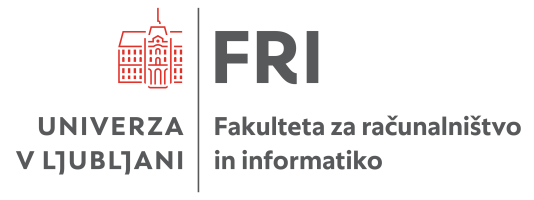
Зайти на Spletna učilnica FRI 25/26
Войти с использованием учетной записи:
Вы в первый раз на нашем сайте?
Teachers from FRI: click on Digitalna identiteta UL and use your existing username and password to login (username@fri1.uni-lj.si)
Teachers from other faculties: click on Digitalna identiteta UL and use username and password from your faculty (eg. username@fe.uni-lj.si,ime.priimek@fmf.uni-lj.si or similar)
Students: click on Digitalna identiteta UL and use your digital identity (nsNNNN@student.uni-lj.si). Students should obtain their identity here https://id.uni-lj.si. The same identity is used in coputer classrooms and for eduroam WIFI.
Other users: Use your local account credentials below.